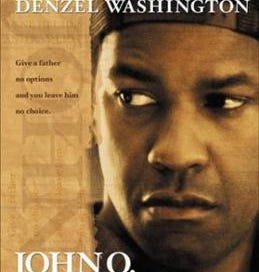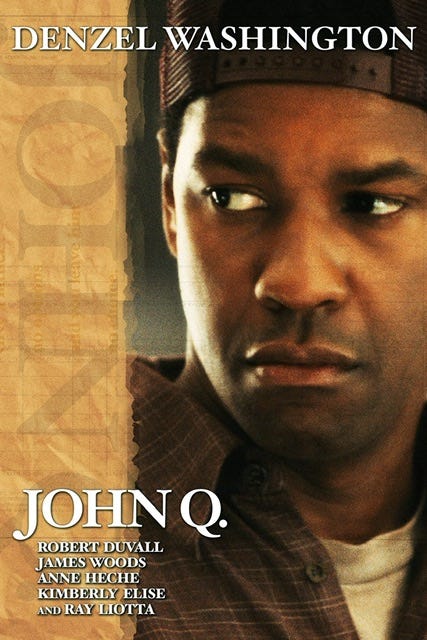Movies: John Q.
The 21st anniversary of early 21st century propaganda for faith, religion and nationalized medicine
This movie, released for distribution in theaters by a Warner Bros. subsidiary studio 21 years ago, propagandizes faith, religion and statism. John Q., which is not without value, was overhyped at the time of release. Philosophically, the hammy drama lacks realism, even on its terms. Denzel Washington’s early 21st century star vehicle is not among his best pictures or performances. His title character doesn’t earn the story’s pivot from hard-working family man to gun-toting criminal.
Suspenseful John Q. deals with serious issues, prompting such questions as would you initiate the use of force to save your child?—is the U.S. health care system rational?—is someone’s need a claim on the lives of others? John Q. dramatizes its position that health care is a right. The movie deserves credit for depicting various value-oriented issues:
Whether health care’s a right
The sleaze, role and bad influence of today’s press
The moral dilemma of suicide
The ethics of a medical emergency
The nature and r…
Keep reading with a 7-day free trial
Subscribe to Autonomia to keep reading this post and get 7 days of free access to the full post archives.




